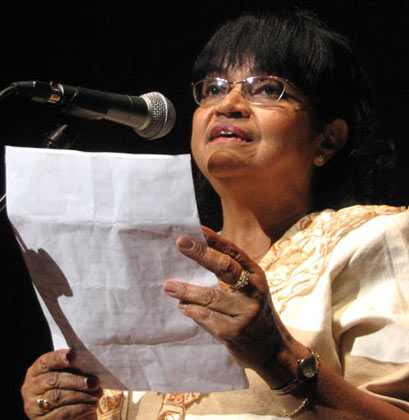11.11 Choral Directors of Cuban Music in the 20th Century (1959-1980).

At this stage of Cuban music in the 20th century (1959-1980), it is important to mention the work of the directors of choral groups, since they enrich the national culture and contribute to raising Cuba’s prestige in terms of the interpretation of choral music.
Juana Rivero Casteleiro, Cuban pianist, choir director, and teacher, better known as Cuca Rivero, introduced choral groups to Cuban television in 1953. A year later, she founded the first choral group associated with television programs, the Cuca Rivero Vocal Ensemble. During the 1960s and 1970s, she served as principal conductor of the Cuban Institute of Radio and Television Choir. She was the choirmaster of the Teatro Lírico.
She made contributions to the Ministry of Education’s music education plan. With the goal of creating a tradition of collective singing in Cuba, she designed and hosted the radio program that brought music education to primary schools, covering preschool and fourth grade. Hence, she became known as the “invisible teacher.”
Electo Silva Gainza, composer and director of the Santiago Choir, is the Permanent President of the National Choir Festival held in the province of Santiago de Cuba. He has been a Guest Professor at the Instituto Superior de Arte (ISA) and a professor at the Universidad de Oriente, as well as director of the University Choir. He was awarded the National Music Prize in 2002.
Octavio Armando Marín is a Cuban arranger, conductor, and choir singer who worked as a radio and television announcer. He founded the National Polyphonic Choir under the direction of Maestro Serafín Pro in 1960; and in 1961, he founded the Matanzas Choir. The following year, he joined the CMQ-TV Choir, directed by Carlos Faxas. With him, he founded the ICRT Choir in 1963. He is a member of the Cuban National Choir. He also sings under the direction of Edmundo López in the Choir of the Nuestro Tiempo Cultural Society.
Currently, he adds to his intense artistic work, his work as a choral arrangement professor at the Instituto Superior de Arte (ISA) (Calle 120 No. 1110 e/ 9na y 13. Cubanacán. Playa. Havana) and the National School of Music (Calle 120 e/ 9na y 13, Cubanacán. Playa. Havana).
Digna Guerra, a renowned choral director, has established the Entrevoces Chamber Choir and also serves as director of the Children’s and Youth Choir, the Madrigalistas Choir of the Palace of Fine Arts in Mexico City, among other roles.
Guerra’s recordings include Tu Son Entero, De una Manera Mejor, and De Todo Corazón, the latter with the Cuban National Choir. The 2006 National Music Prize winner is one of the many awards this prestigious choir director has received for her extensive work in Cuban music.
Emilia Díaz Chávez, a Cuban choir director, was born in Santiago de Cuba. She holds a degree in music education from the José Martí Higher Pedagogical Institute in Camagüey, where she currently resides. Since 1980, she has served as director of the Camagüey Choir. She has also performed in concert halls in several Cuban provinces. She has directed other groups such as the Bayamo and Holguín choirs, the Madrigalista choir of Santiago de Cuba, as well as the Camagüey Band and Symphony Orchestra. In 1994, she founded the vocal group Desandann as an offshoot of the choir. With the choir, she has represented our country and brought Cuban choral music to numerous nations.








